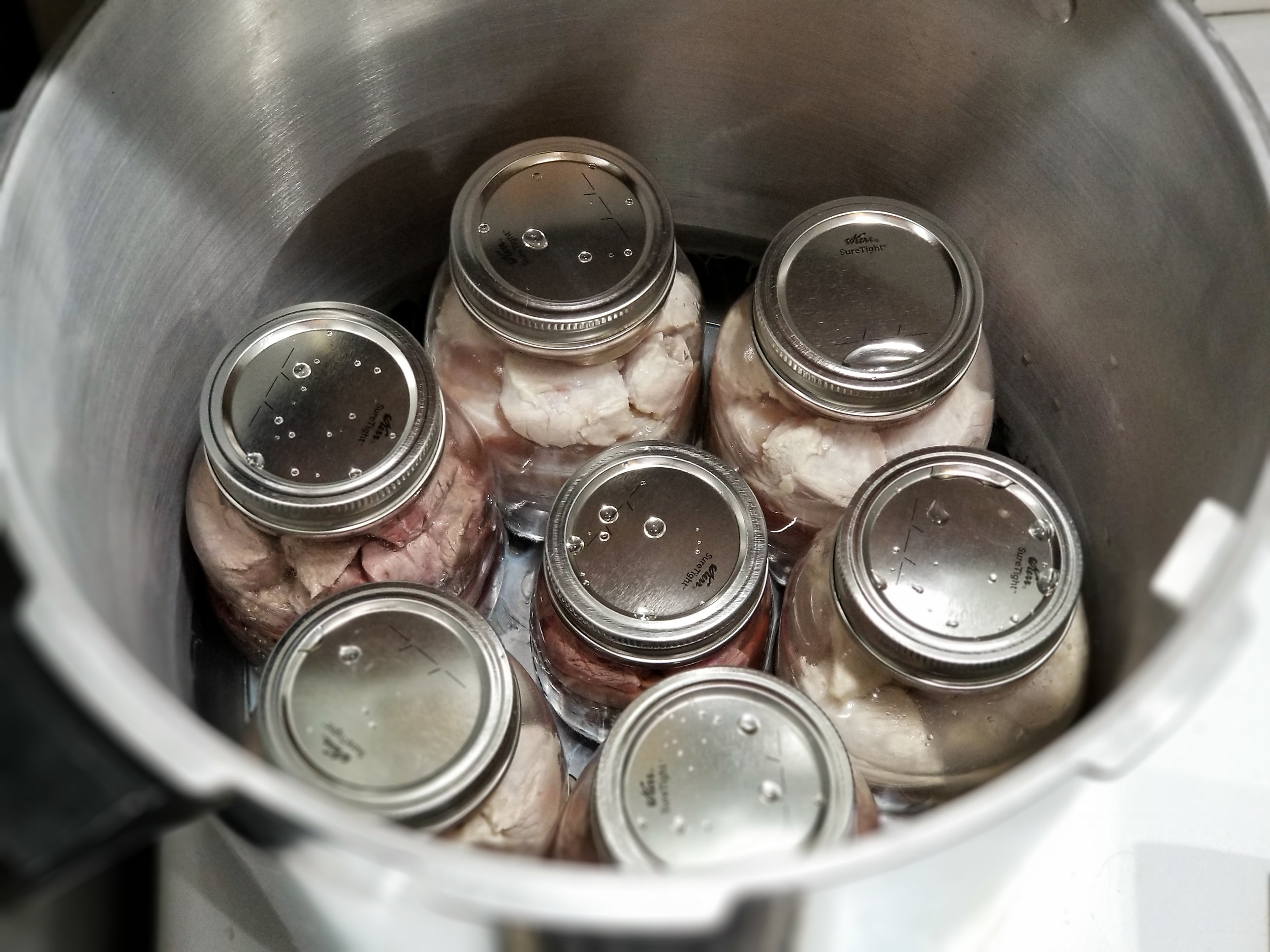Pressure Canning Basics
Pressure canning is the only safe method of preserving low-acid foods. Low-acid foods include vegetables, meats, fish, and poultry. Pressurized steam creates the needed temperature of 240 degrees Fahrenheit or higher that will destroy the bacterial spores naturally present in these foods. As the jars cool, a vacuum is formed, sealing the food in the jars and preventing any new microorganisms from entering and spoiling the food.
Pressure canning can seem intimidating. If your canner malfunctions, you basically have a pipe bomb in your kitchen. (More on that below.) However, pressure canning is really pretty simple. Also, if you buy a pressure canner, you can also use it without the lid for water bath canning.
Follow these recommended steps for proper pressure canning:
Put two to three inches of hot water in the pressure canner. Place filled jars on the rack in canner and secure lid as directed by canner manufacturer.
Leave vent port off, turn heat to highest setting and heat canner until steam flows from the vent port.
Once steam pours steadily from the vent, let it escape for 10 minutes to drive air out of canner.
Place weight on vent port and allow canner to raise to the proper pressure.
Start counting processing times once the dial gauge or weighted gauge has reached the recommended pressure (see manufacturer’s directions).
Regulate heat to maintain steady pressure. If reading decreases from the recommended pressure, bring pressure back up and start timing process again.
When timed processing is complete, turn off heat and wait until canner returns to zero on a dial gauge and 30 to 45 minutes for weighted gauge (see manufacturer’s directions).
Remove jars with a jar lifter and place on a towel or cooling rack.
Leave jars on the counter, undisturbed for 12 to 24 hours.
After cooling, check that all lids have properly sealed. If a jar has not sealed, the contents can be reprocessed according to recipe directions or the jar must be refrigerated and eaten immediately.
Many extension services offer pressure canning dial gauge testing. It is recommended each year to have dial gauge pressure canners calibrated for safe food preservation. Pressure canners with weighted gauges do not need to be tested.

